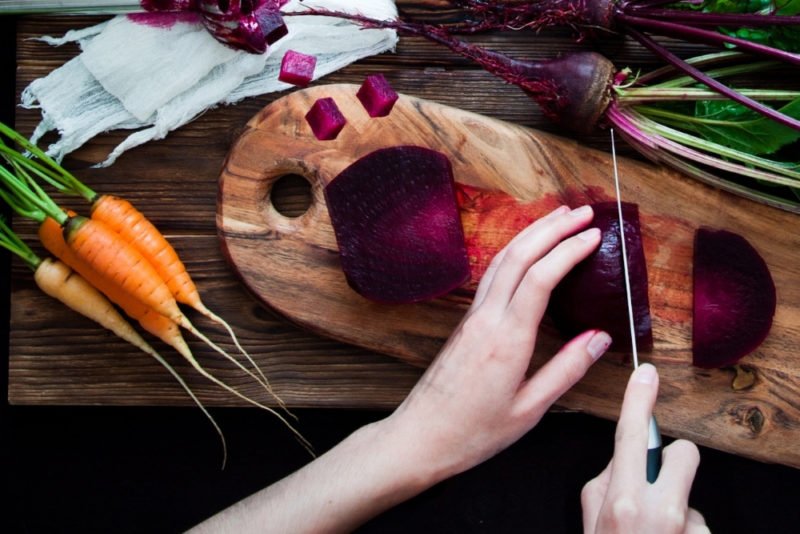
Do you fall prey to busy brain syndrome? Do you feel guilty if you’re not being “productive,” whether that’s with work for pay or work without pay (i.e., volunteer work, household tasks, running errands)? You can probably thank this country’s Puritan legacy for the idea that idleness is akin to all manner of sins. But here’s the reality: Our brains need more downtime, and there’s no underestimating the benefits of that downtime.
There’s been a lot coming at us lately with the pandemic and the election. Maybe you’ve been sucked into watching way too much news. Maybe you’re juggling working from home with homeschooling your kids. Maybe you’re struggling to balance a social life with staying safe from COVID. Maybe you’re overextended with texts and video chats with coworkers, friends or family.
It may be that this year isn’t busier than any other year. Maybe you’ve always been in the habit of doing, doing, doing, and while some of the details have changed, the core theme remains the same. Either way, when you don’t give your brain a chance to reboot and recharge, you’re sacrificing your productivity, creativity and mental health.

What happens when you don’t rest your brain
I think it’s common knowledge that our brain needs sleep to recharge (not that this keeps many people from skimping on sleep), but do you know how important it is to give your brain waking breaks?
When you have a lot coming at you, whether it’s information or worries or a long to-do list, your brain can have trouble processing it all. Have you had the experience of starting off your day super productive, only to find in the early afternoon that you’ve been staring at the same sentence on a page (or your computer) without comprehending it? That’s you’re brain telling you to stop, just stop. When I feel the urge to online shop or look up celebrity news, I know that it’s time to give my brain a meaningful break (and neither aimless shopping nor celebrity goings on are “meaningful,” in my book).
But even though I know this, and I now recognize the signs, I find it hard to break away from my desk and do some yoga, go for a short walk, meditate, or simply stare out the window. Why? I’m sure my perfectionistic personality has something to do with it, and so does FOMO…but cultural conditioning likely plays a larger role.

Why do we diss our vacation time?
I think it’s also common knowledge that American workers get less paid vacation time than most countries, especially European and Scandinavian countries. (It doesn’t help that the U.S. stands alone among the 36 wealthiest nations in the world in NOT requiring any paid time off.) But even though we’re getting better at actually taking the vacation we are entitled to, collectively, we still leave a lot of vacation days on the table. In 2018, 55 percent of American workers with paid vacation didn’t take all of it.
And when we are “on vacation,” we’re often working, too. The ability to be “connected” wherever you are definitely has a downside when you’re expected to check your work email while you’re supposed to be relaxing—whether that expectation comes from your employer, or simply from your own head. One 2019 survey found that 70 of American workers check in with work regularly while they are on vacation, with almost 55 percent of respondents saying that they were doing it out of habit or free choice. This is the first year since 2009 when I did not work at all on any vacation (which this year was limited to camping). Seriously.
And this level of busyness doesn’t necessarily stop with retirement. I think it’s safe to say that most of my retired clients—especially those who have recently retired—have the same drive to be doing, to be productive. Until they reach a breaking point.

This is your brain on downtime
Despite our assumptions, perpetual busyness does not make us more productive, and it’s certainly not good for our mental health. In his 2012 essay, “The ‘Busy’ Trap,” in the New York Times, Tim Krieder wrote, “Idleness is not just a vacation, an indulgence or a vice; it is as indispensable to the brain as vitamin D is to the body, and deprived of it we suffer a mental affliction as disfiguring as rickets. The space and quiet that idleness provides is a necessary condition for standing back from life and seeing it whole, for making unexpected connections and waiting for the wild summer lightning strikes of inspiration—it is, paradoxically, necessary to getting any work done.”
Research shows that when we’re resting (whether through sleep or through waking downtime) our brains are far from idle, that a complex brain circuit known as the default mode network (DMN) springs to action. When we allow our minds to wander, when we “indulge” in daydreaming, key mental processes that depend on the DMN are able to happen. Some of these processes help us form our sense of self, others help us understand human behavior and instill an internal code of ethics.
The DMN helps us integrate information from multiple brain regions in more complex ways than we would if we were consciously trying to do that integration ourselves. Have you ever struggled with a tough problem, only to have a solution come to you while you’re in the shower or out on a walk? You can thank your DMN.

So, what does this have to do with nutrition?
Let’s face it, when you are mentally exhausted, the idea of preparing a balanced meal or snack can feel like the straw that broke the camel’s back. So much easier to just reach for the block of cheese and the box of crackers than to get out actual pots or pans and chopping some vegetables or tossing a salad. Especially since that means…doing dishes.
When we push out brains too far, when we come up for air we’re desperate for any respite, and comfort eating and vegging in front of the TV or mindlessly scrolling through your social media feed are likely candidates. But while there’s nothing wrong with TV (I’m currently working my way through Season 3 of “Killing Eve” as well as “Normal People,” which is totally excellent and so was the book, which I read a few weeks ago), it’s really not a replacement for quality mental downtime.
Ideally, we can rest and recharge regularly, allowing us to have the bandwidth to not only cook, but perhaps get pleasure from cooking. But if you’re not there yet, start by making a loose plan of what you will prepare for dinners for the next 3-5 days, perhaps starting with what’s already in your fridge/freezer/pantry. This way you don’t have to THINK about what to make when hunger hits. Focus on meals that you can practically make blindfolded…trying to focus on following the steps of a new-to-you recipe may feel too taxing. If the recipe involves some chopping, try to do it earlier in the day (if you’re at home and could use a break from work other activities) or perhaps the evening before when you’re not actually hungry and hustling to get a meal on the table. Play some music or just enjoy the quiet (if that’s possible in your house).
What about when you’ve been at your computer for hours and find yourself wanting to go forage for a snack? Ask yourself if you are actually hungry, or if you just need a break. Sometimes, we use eating as justification for a break, but we need and deserve breaks, period! If you are hungry, think of what will taste good and offer some nourishment and sustenance. Hummus and veggies, an apple and a piece of cheese, a banana and peanut butter. These will ultimately leave you feeling better than diving into that open bag of chips or the leftover Halloween candy.

6 ways to give your brain a break
OK, so you’re on board with the benefits of downtime. Here are some places to start:
- Get 7 to 8 hours of sleep each night. We get energy from two sources, sleep and food, and you can’t swap one for the other!
- Eat the frog. Huh? This is a memorable (and, yes, somewhat gross) way of suggesting that you do your most challenging task first thing in the morning, so 1) it has your full attention and 2) the fact that you have this challenging task to do isn’t rattling around the back of your mind all day. This is especially important if the task is somewhat dreaded…enter the frog.
- Use all of your vacation days, even if this means staycationing. (Working from home is not a vacation, fyi.) If you are a busy retired person, you need vacation downtime, too. If taking a full week or two off feels stressful or daunting, then take several long weekends…and don’t check your email.
- Take power naps. While research shows that long naps (20 to 30 minutes) can result in “sleep inertia” (aka post-nap grogginess) that can take up to a few hours to fade, 10-minute naps enhance performance with no grogginess. Since the “nap clock” starts ticking only when you actually begin to doze, I’m not sure how you stick to a 10 minute nap when researchers aren’t monitoring you. Maybe set a (soothing, not shrieking) alarm for 20 minutes, assuming that it will take you up to 10 minutes to doze off? As for nap timing, between 2 and 4 p.m. is best, when our brains are most predisposed for a second snooze.
- Practice mindfulness meditation. When you practice this type of meditation, you pay close attention to whatever the mind is doing on its own, rather than trying to force your mind to focus on something external. Research shows that mindfulness meditation can not only improve your overall focus and strengthen your memory, but it can improve mental health.
- Spend time in nature. The busyness of daily life and urban environments both sap our focus, while natural environments restore it. In nature, your mind is free to leisurely shift it’s attention from birdsong to dappled sunlight to the sound of leaves rustled by wind. Take a day hike, visit a nearby park or riverfront, or simply putter in your backyard.
Disclaimer: All information provided here is of a general nature and is furnished only for educational purposes. This information is not to be taken as medical or other health advice pertaining to an individual’s specific health or medical condition. You agree that the use of this information is at your own risk.
Hi, I’m Carrie Dennett, MPH, RDN, a weight-inclusive registered dietitian, nutrition therapist and body image counselor. I offer compassionate, individualized care for adults of all ages, shapes, sizes and genders who want to break free from eating disorders, disordered eating or chronic dieting. If you need to learn how to manage IBS symptoms with food, or improve your nutrition and lifestyle habits to help manage a current health concern or simply support your overall health and well-being, I help people with that, too.
Need 1-on-1 help for your nutrition, eating, or body image concerns? Schedule a free 20-minute Discovery Call to talk about how I can help you and explore if we’re a good fit! I’m in-network with Regence BCBS, FirstChoice Health and Providence Health Plan, and can bill Blue Cross and/or Blue Shield insurances in many states. If I don’t take your insurance, I can help you seek reimbursement on your own. To learn more, explore my insurance and services areas page.






